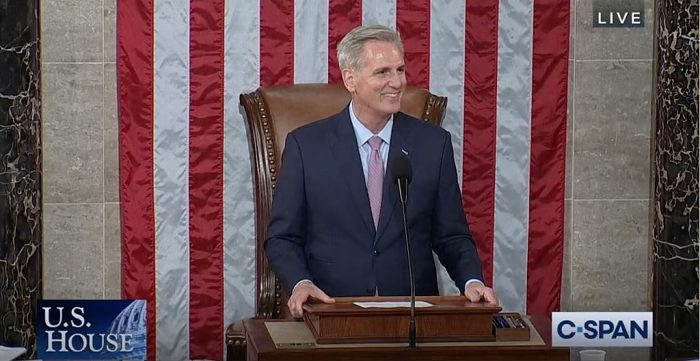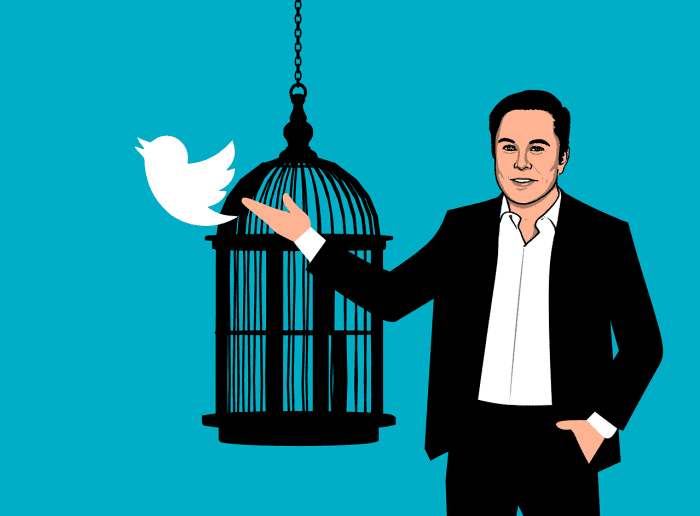By Daniel Dunaief

I heard from a friend, who heard from another friend whose neighbor’s cousin is the babysitter of someone who works in Congress. So, it has to be true.
Here’s the deal: I know some of the concessions Kevin McCarthy (R-CA) made to become speaker of the house.
The person who heard it fourth hand was in the bathroom, minding his own business, trying, from what I understand, to make his best guesses at Wordle on his phone while battling an upset stomach when three of the principal negotiators in the process entered the bathroom and spoke in whispers.
The first concession is that McCarthy must begin each day by saying the words “we are all equal, but some are more equal than others,” at which point he’s supposed to subtly make the letters G and O in sign language with his hands to show that he’s thinking about “Animal Farm” author George Orwell.
Then, he has to look at the audience carefully to see if Rep. Matt Gaetz (R-FL) has had a bad night. If Gaetz gives him a particular signal, he’s not allowed to bang his gavel too loudly, to prevent a headache from getting worse.
Once he’s gotten everyone’s attention, he then agreed that he’ll lead the house in the Pledge of Allegiance, pausing when he reached the “under God” section to make it clear that religion is not only okay, but that many people, particularly those who might not have otherwise voted for him, believe in God.
When President Joe Biden (D) gives his state of the union address, he will give at least 15 head shakes, five winces and nine arched eyebrows. At the end of the speech, to defend former president Donald Trump (R), he plans to take a page out of the previous speaker’s playbook by picking up the copy of Biden’s speech and tearing it up in disgust as it were the first chapter of a book he’d like to ban from libraries around the country.
Speaking of beyond belief, McCarthy has then agreed that if Rep. George Santos (R-NY), whose name might have changed by the time this is relevant, is still in the house, McCarthy should ask him to sing a few songs.
For starters, according to Santos’s resume, he has won at least three Grammy awards, which means he has a wonderful and lyrical singing voice.
When things get too tense during deliberations with other Republicans, let alone the Democrats who are ruining the government and the country, McCarthy has a playlist for Santos. He’s going to sing the Meghan Trainor song, “Lips are Movin,” with a slight modification in the wording.“If my lips are moving, then I’m lyin’, lyin’, lyin’, baby.”
If things continue to be tense for hours, as a politician continues grandstanding, Santos can provide a Billy Joel encore, again with a slight tweak:
“Honesty is such a lonely word
I am certainly so untrue
Honestly is hardly ever heard
And rarely what I give to you.”
Following the example of Trump, McCarthy also agreed to hug a flag in public at least three times a year, to normalize the behavior and to demonstrate his commitment to America and the country’s values.
He also promised to support at least 13, for the original colonies, investigations in his first year as speaker, with a commitment to at least another dozen in his second.
Finally, in a subtle gesture meant to celebrate the political right, he planned to stand to the right of the podium and only to hit the gavel with his right hand while pausing to emphasize the word “right” every time he utters it.















